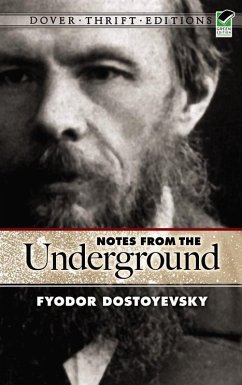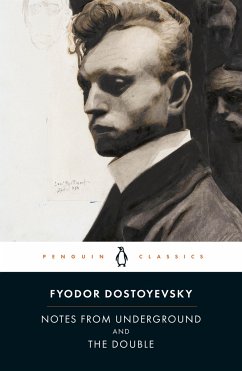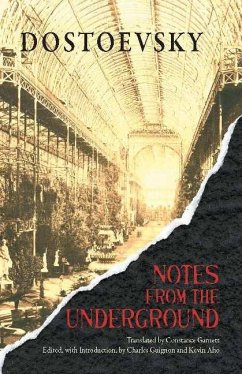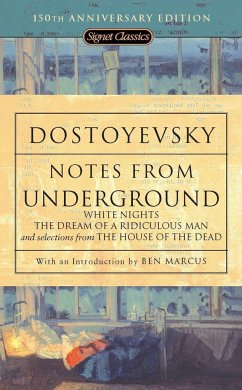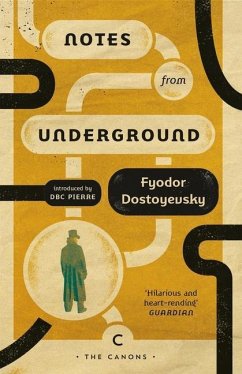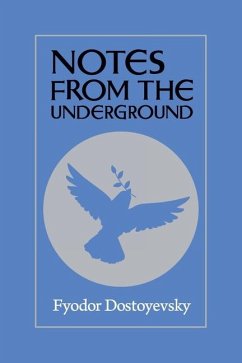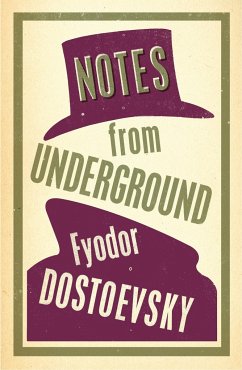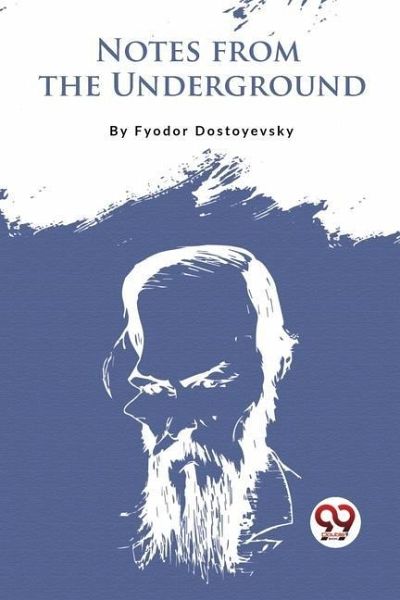
Notes From The Underground
Versandkostenfrei!
Versandfertig in 1-2 Wochen
17,99 €
inkl. MwSt.

PAYBACK Punkte
9 °P sammeln!
Fyodor Dostoevsky's story Notes from Underground was initially presented in the 1864 issue of Epoch. It is a first-person account that takes the form of a "confession." Dostoevsky initially published the piece in Epoch under the title "A Confession." The novella presents itself as an excerpt from the memoirs of a bitter, reclusive, unidentified narrator who lives in St. Petersburg and is a retired civil official (sometimes referred to as the Underground Man by critics). Although the novella's first section is written in the style of a monologue, the narrator's dialogue with the reader is sharp...
Fyodor Dostoevsky's story Notes from Underground was initially presented in the 1864 issue of Epoch. It is a first-person account that takes the form of a "confession." Dostoevsky initially published the piece in Epoch under the title "A Confession." The novella presents itself as an excerpt from the memoirs of a bitter, reclusive, unidentified narrator who lives in St. Petersburg and is a retired civil official (sometimes referred to as the Underground Man by critics). Although the novella's first section is written in the style of a monologue, the narrator's dialogue with the reader is sharply dialogized. In the Underground Man's confession, "there is literally not a single nomologically firm, the undissociated word," according to Mikhail Bakhtin. Every word spoken by The Underground Man anticipates another's, with whom he engages in an obsessive mental debate. The Underground Man criticizes modern Russian philosophy, particularly What Is to Be Done by Nikolay Chernyshevsky. The work might be seen as an attack and a rebellion against determinism, which holds that everything, including human individuality and volition, can be boiled down to natural laws, scientific principles, and mathematical formulae. There are two sections to the novella.





